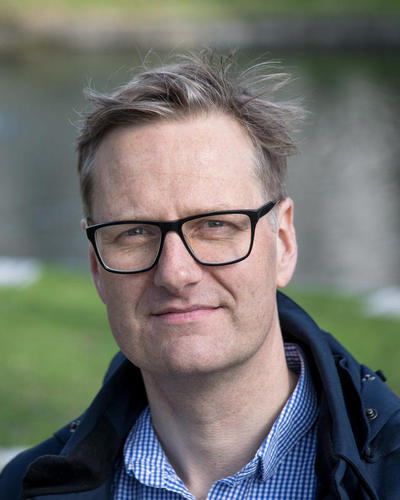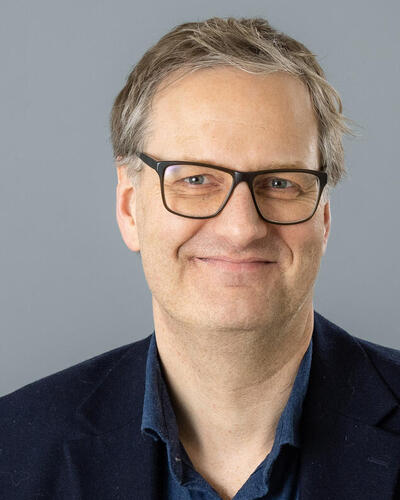Climate
Climate change is one of the greatest challenges of our time. While we have acquired substantial knowledge about physical climate changes and to some extent their impacts on society, new knowledge is needed about how to achieve deep, rapid and sustainable transformation of society.

Hovedinnhold
Education is a key part of this, since society needs citizens and practitioners that integrate understanding of climate change in big and small decisions. Yet transformation of society to meet the climate challenge means that we must think about education in new ways. In the climate pillar of Bergen School of Global Studies we aim to develop courses and student activities that encourage interdisciplinarity, problem-oriented learning, and sustainable innovation.
The pillar is led by the Centre for Climate and Energy Transformation (CET), an interdisciplinary research centre based at the Faculty of Social Science. While we have acquired substantial knowledge about physical climate changes and to some extent their impacts on society, new knowledge is needed on how to achieve deep, rapid and sustainable transformation of society.
The overarching goal of CET is to produce actionable knowledge that can inform policy and practice about how to achieve deep, rapid and sustainable transformation of society to mitigate climate change. To achieve this, CET initiates and conducts problem-oriented social science research in collaboration with researchers from other disciplines, and with the involvement of public and private sector user partners when appropriate. CET will bring together scientists from a variety of social science and other disciplines, and strengthen itself as a broad and visible interdisciplinary knowledge hub regionally, nationally and internationally.
Courses and subjects taught in English
Spring
FIL336 Environmental Ethics (Trygve Lavik)
GEO316 Practical Skills in Remote Sensing and Spatial Analysis (Benjamin Robson)
GEO324 Geographies of the Green Economy (Mahir Yazar)
GEO337 Discourses, Politics and People: Critical Perspectives on Environmental Governance (Connor Cavanagh)
GEO-SD321 Model-Based Socioeconomic Planning (Matteo Pedercini)
GEO-SD330 Natural Resource Management (Erling Moxnes)
JUS3511 International Climate Law (Ignacio Herrera Anchustegui)
Autumn
BIO341 Biodiversity (Sonya Geange and Joshua Lynn)
BIO382 Aquatic Food Production (Erik Jan Robert Lock)
FIL328 Moral Philosophy (Espen Gamlund)
GEO330 Theories of Sustainable Land Use (Ole Reidar Vetaas and Connor Cavanagh)
GEO-SD302 Fundamentals of Dynamic Social Systems (Erling Moxnes)
GEO-SD330 Natural Resource Management (Erling Moxnes)
GEOF347 Seminar on Earth System Science for Sustainability (Christoph Heinze)
JUS3510 Energy Law: Hydrocarbons, Renewables and Energy Markets (Ignacio Herrera Anchustegui)
JUS3516 Law of the Sea and its Uses (Ignacio Herrera Anchustegui)
RELEVANT UNDERGRADUATE COURSES:
Spring
SDG214 UN Sustainable Development Goal 14: Life Below Water (Gabriella Ljungström)
SDG215 UN Sustainable Development Goal 15: Life on Land (Inger Elisabeth Måren)
Autumn
SDG213 Causes and Consequences of Climate Change (Kerim Hestnes Nisancioglu and Asgeir Sorteberg)
SDG207 Energy Transition (William Helland-Hansen)
Master's degree programmes taught in English
Geographies of Sustainable Development
Our planet is facing increasing climate changes and sustainability challenges. This programme gives you the framework, theories and practices to work out research-based ways to solve some of the most important issues today.
Contact: Grethe Meling
Meteorology and Oceanography
This programme provides comprehensive insight into the forces that control the movements of the atmosphere and the ocean including sea ice; central physical processes in the atmosphere and the ocean; the interaction between sea, sea ice and atmosphere; weather forecast, the cycling of nutrients and carbon in the ocean; and regional and global climate and climate change.
Biology
Biology develops knowledge that is needed to solve many of society's major challenges. It is essential to understand the effects of anthropogenic changes to natural processes in the short and longer term. We also need biological knowledge to ensure sustainable social and economic development.
Energy
This programme provides the student with a theoretical foundation to understand a wide range of issues related to energy. Specialisation within topics related to renewable energy and energy technology is possible. The programme gives the student capabilities to consider energy supply, conversion and application in a wider environmental and societal perspective.
Sustainability
This programme gives students expertise in interdisciplinary approaches to dealing with global challenges. Using systems thinking and modelling approaches, the programme provides the students with the knowledge, skills and competencies required for understanding, analysing and shaping solutions to wicked problems in ways that are societally, ecologically and economically sustainable.
Contact: Kjetil Rommetveit

